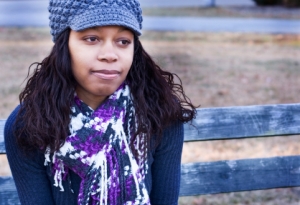 I hate change, which I know is probably strange for me to say because during my therapy sessions I do a lot of what is called change talk, which is talking about and encouraging change. I generally consider myself to be an agent of change as I guide my clients through the stages of change, but I myself have always had issues with change. I don’t like it.
I hate change, which I know is probably strange for me to say because during my therapy sessions I do a lot of what is called change talk, which is talking about and encouraging change. I generally consider myself to be an agent of change as I guide my clients through the stages of change, but I myself have always had issues with change. I don’t like it.
Some people love change and I always admire those people. They love new adventures, they adapt quickly, and never seem to get stuck in a rut or dead end job. They seem to just be wired differently and indeed, the ease to which people accept or don’t accept change is a personality trait known as the Openness trait and some people are naturally more open than others to change.
My fear of change over the years has cost me a lot. It has kept me at jobs I should have moved on from for far too long and in relationships I should have left for far too long. It has also kept me from experiencing many pleasures and probably some pains and failures, otherwise known as learning experiences and opportunities to grow.
I, like a lot of people, like being comfortable, playing it safe, even when that inertia isn’t all that great and sometimes downright unpleasant. There’s a popular quote by a late, great female therapist, I couldn’t find it or her name, but it basically says that we prefer the familiar negative to the potential unfamiliar positive, except of course she said it more beautifully.
And this tends to be true, at least for me and the majority of my clients who struggle to make changes in their thinking and interpersonal lives because they are afraid of what the new change will bring, good or bad, but they know exactly what the old thinking and behavior will continue to bring them, both good and bad. This is one of many reasons people resist change.
This is why I think I was so successful at helping people make changes they found difficult to make, because I understood their ambivalence towards change, their desire to both want to change and not want to change at the same time because I’ve experienced it so many times myself, even in ways that bordered being neurotic.
It’s easier to stay the same. Inertia is much easier than movement, especially when that movement has to be sustained, yet inertia robs us of so many experiences, opportunity and growth. A fellow therapist recently old me that if you are comfortable, then you are not growing. You should always be challenging yourself.
It’s that comfort zone I try to push my clients out of because sometimes you have to become a little uncomfortable to truly grow and realize your full potential and the same applies to me.
Some of you who follow my blog may know that the grant that pays for me to serve the students at the inner-city school I work at is coming to an end this Friday. The school has been working really hard to find funding to keep me and they may be close to working something out, but I couldn’t count on that to come through so reluctantly I started looking for another job.
Well an opportunity came up for me to apply for a job as a supervisor at the mental hospital I used to work at fresh out of grad school as a supervisor over the crisis unit I used to work at. I loved working in the mental hospital, I enjoyed dealing with people in various stages of a crisis from emotional and mental break downs to substance withdrawals.
This opportunity would force me to grow, push me out of my comfort zone, pay better and definitely be an upward climb in my professional career, so I applied for the job and got the news Friday that I got it. I should be excited right? But remember, I don’t like change and I do love working at the inner-city school I currently work at even though I potentially won’t be there next school year anyway because of funding.

I love working with the teenagers I work with, helping mold young lives and by taking this job at the mental hospital, I would miss that although in my private practice I would still see a very small number of teenagers. Although I would be taking a pay cut to stay at the school, potentially not have a job this year or next year AND still be stagnant career wise, I seriously thought about turning down the supervisor job to stay where I was comfortable, in a place that would require no effort (inertia) although I know I would love doing my job (compared to the unknown level of satisfaction of a new job).
I’ve had similar opportunities twice in the past two years to make more money and move up professionally and both times I turned it down to stay comfortable. Of course I said I did it because the kids need me, and while I felt like that was true, I also know that a large reason I stayed was fear of change.
Now however, I am pushing myself into change just as I talk to my clients about pushing themselves out of their comfort zones.
It’s with a heavy heart that I took this new job, something I should be extremely happy I got because the chances seemed so slim when I first applied and went through two interviews. After all, I have no real supervisor experience, but I have experience working in a crisis unit and my love and dedication to the mental health field and those who suffer from mental illness is unparalleled.
And it’s with a heavier heart that I have to tell the school tomorrow that I will not be returning for another school year. It’s a tough decision and one I made ultimately not out of where the money was, or where I felt most comfortable, but where I needed to be for both professional and personal growth.
I am pretty sure it won’t feel as rewarding and life changing as working with the high school students I work with, but I think it will allow me to serve people in another way while learning more about myself and the mental health system altogether.
My passion will always be teens and adolescences, and I’ll continue to write a lot about issues that effect that population, but I am sure that naturally I’ll write more and more about issues and situations I encounter working in the mental hospital.
So while I am still anxious and uncomfortable I’m pushing myself towards this change, trying to welcome it and all of the new possibilities that come along with change. After all, how can I promote change in others if I am unwilling to go through the uncomfortableness of change myself?




